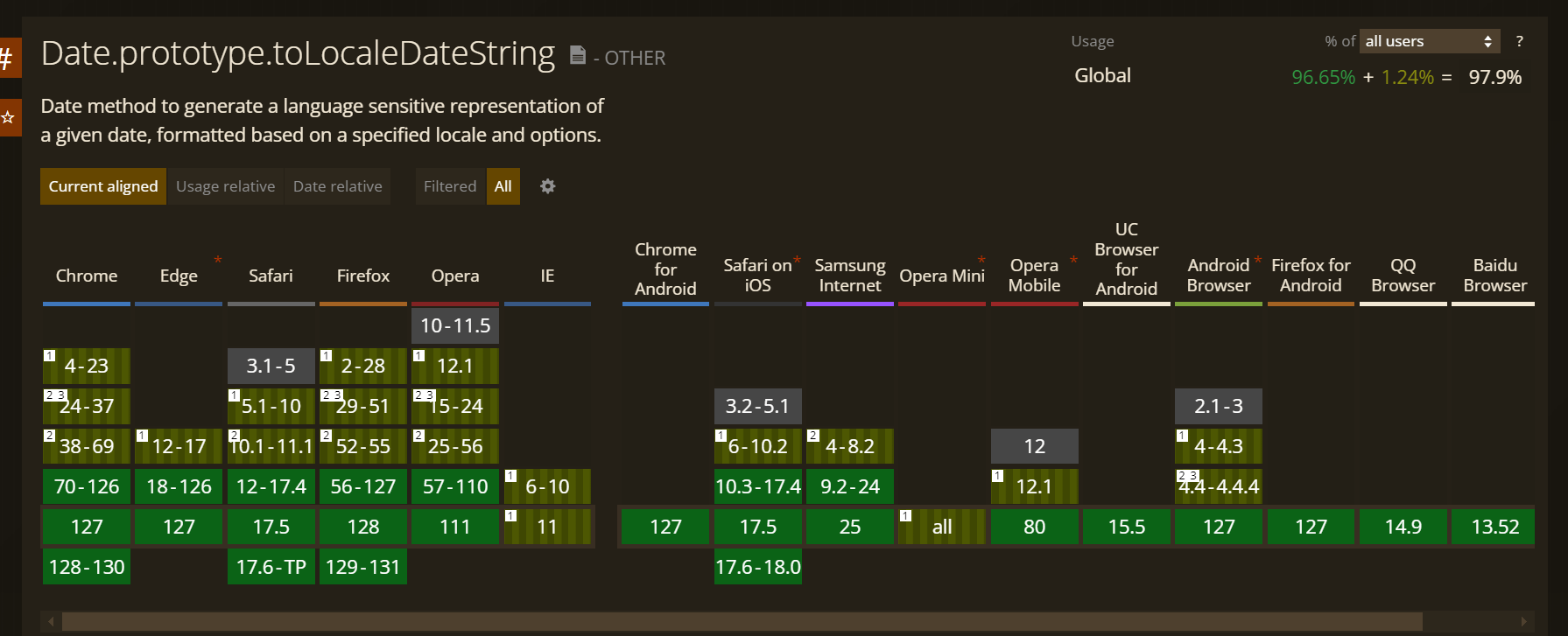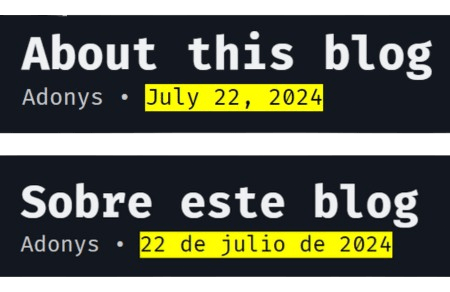Internationalized dates without libraries
Adonys •
It is very common to work rendering dates in different languages, and there are many libraries to do this, but in my blog I implemented a simple internationalized date without libraries, using a JavaScript method called toLocaleDateString that is available in all modern browsers.

The amazing thing about that, is that you can use it on any framework or library. For example, in my blog, I am using Astro and the code looks like this:
---
type Props = {
lang: string;
date: Date;
};
const { lang, date } = Astro.props;
---
<time datetime={date.toISOString()}>
{
date.toLocaleDateString(lang, {
year: "numeric",
month: "long",
day: "numeric",
})
}
</time>
In this case, I am creating a component that receives the language and the date as props, and then I am using the toLocaleDateString method to render the date on my preferred format.
Also, It is recommended to use semantic HTML, so in this case, I am using the time tag to wrap the date and passing the datetime attribute with the ISO string of the date to make it accessible for screen readers. Although the tag name is time, it also works for dates or a combination of date and time.
And voilà! We have an internationalized date without libraries:

The same logic can be implemented in any framework or library.
React:
interface FormattedDateProps {
lang: string;
date: Date;
}
const FormattedDate = ({ lang, date }: FormattedDateProps) => (
<time dateTime={date.toISOString()}>
{date.toLocaleDateString(lang, {
year: "numeric",
month: "long",
day: "numeric",
})}
</time>
);
Vue:
<template>
<time :datetime="date.toISOString()">
{{
date.toLocaleDateString(lang, {
year: "numeric",
month: "long",
day: "numeric",
})
}}
</time>
</template>
<script>
export default {
props: {
lang: String,
date: Date,
},
};
</script>
Angular:
import { Component, Input } from "@angular/core";
@Component({
selector: "app-formatted-date",
template: `
<time [datetime]="date.toISOString()">
{{ date.toLocaleDateString(lang, {
year: "numeric",
month: "long",
day: "numeric",
}) }}
</time>
`,
})
export class FormattedDateComponent {
@Input() lang: string;
@Input() date: Date;
}